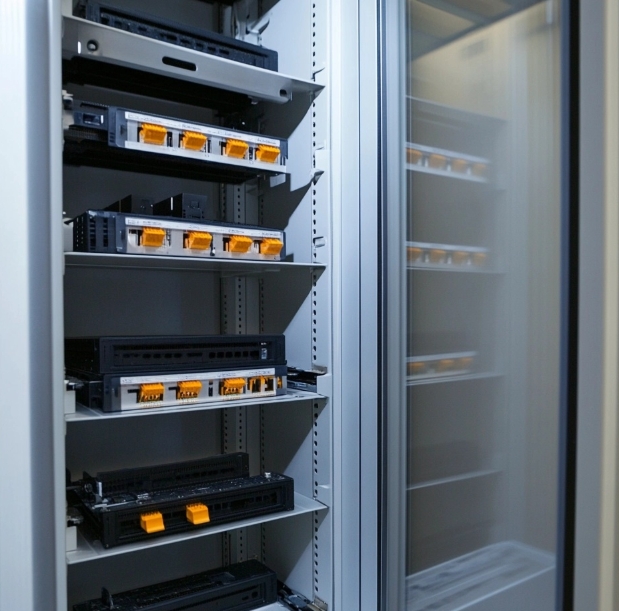 To Know Dryzone More
To Know Dryzone More
For electronics manufacturers, PCB assembly houses, and semiconductor suppliers, proper component storage is not just a logistics concern—it's a critical production factor. Moisture-sensitive devices (MSDs) including ICs, BGAs, and QFPs demand precise environmental control to prevent oxidation, popcorn effects during reflow, and electrical performance degradation. Industrial dry cabinets have emerged as the engineered solution for protecting sensitive electronic inventories while maintaining fast access for production workflows.
Contemporary component packaging such as moisture barrier bags with desiccants provide only temporary protection once opened. Industry studies reveal:
60% of electronic component failures trace back to moisture-induced defects
Components rated MSL 2A or higher require immediate dry storage after exposure
Just 8 hours of ambient exposure can compromise many modern chip packages
This explains why IPC/JEDEC J-STD-033B mandates controlled dry storage for all moisture-sensitive devices in manufacturing environments.
Ideal RH Range: 5-10% for most semiconductor devices
MSL Compliance: Must maintain humidity below J-STD-033 thresholds
Recovery Time: Should restore <5% RH within 15 minutes after door opening
Molecular Sieve Desiccant Systems
Regenerative adsorption technology
Maintains stable humidity without manual desiccant replacement
Smart Humidity Controllers
Digital PID-based regulation
±1% RH precision with fail-safe alarms
Material Considerations
Powder-coated steel or stainless steel interiors
ESD-safe shelving configurations

Immediate transfer from MBB to dry storage
RFID tracking for exposure time monitoring
Sequential drawer systems minimizing humidity loss
Integrated barcode scanners for inventory control
Multi-zone cabinets with separate humidity controls
Automated nitrogen purge options for ultra-dry preservation
When evaluating dry box for electronic components storage, industrial buyers should prioritize:
| Parameter | Entry-Level | Industrial Grade | Semiconductor Grade |
|---|---|---|---|
| RH Control Range | 10-20% | 1-10% | 0.5-5% |
| Recovery Speed | 60 min | 30 min | <15 min |
| Compliance | MSL 3 | MSL 2A | MSL 1 |
| Connectivity | Local Display | Ethernet/Modbus | SECS/GEM |
Additionally, consider:
UL, CE, and RoHS certifications
Energy efficiency ratings (kW/hr per volume)
Service contracts for desiccant module maintenance
Beyond preventing scrap and rework, advanced dry cabinets:
Extend component shelf life 3-5X beyond MBB storage
Reduce baking pre-processing by up to 80%
Enable just-in-time inventory management
For EMS providers handling high-value components, the payback period on premium dry storage solutions typically measures in months rather than years.
Leading electronics manufacturers now treat dry storage capability as a competitive differentiator—one that assures customers of their commitment to component integrity throughout the supply chain. When specifying dry cabinets, consult directly with OEMs to match technical capabilities with your specific component mix and production throughput requirements.